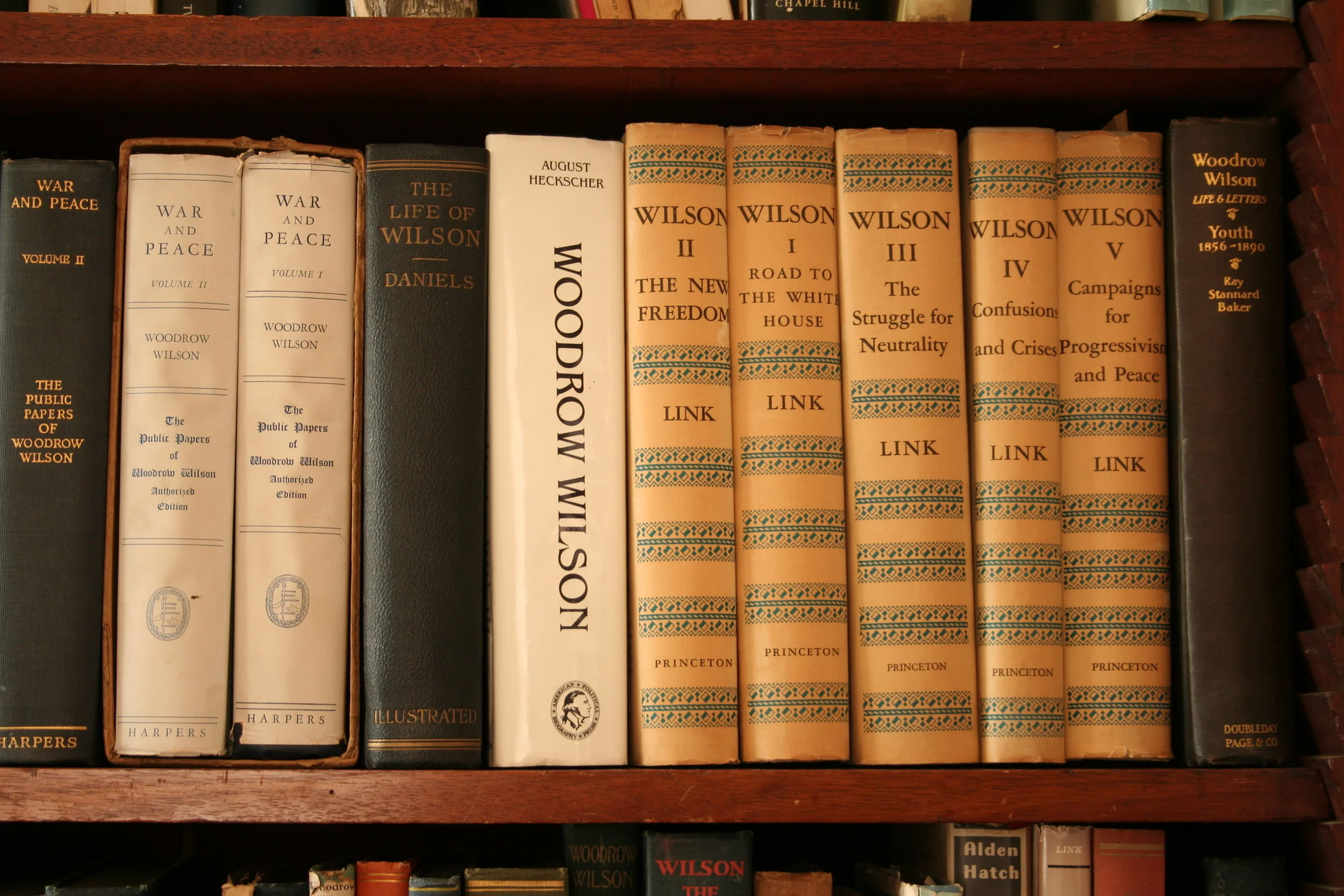Woodrow Wilson’s Civil War
/In his marginal notes on a book by James E. Therold Rogers, Woodrow Wilson wrote in 1880, in shorthand:
To me the Civil War and its terrible scenes are but a memory of a short day. I have reached maturity at a time when the passions it stirred have cooled and when it is possible even for those who were actual participants in its transactions to judge its issues without heat and almost without prejudice. In this calmer period I can clearly see that the suffering of the Confederacy was an inestimable [?] blessing, that the doctrine of states rights was a danger settled, and that the abolition of slavery was, even for us, a lasting benefit.
Wilson’s own feelings might have cooled, but he still was quick to defend the South against criticism about its culture and politics before the Civil War.
Wilson Residence, Augusta, Georgia, no date
After his family had left Staunton, Virginia, while Wilson was still an infant, they moved to Augusta, Georgia where his father took up another job as a Presbyterian minister. After two years in the church manse, the congregation built them a grander manse in 1860, and the family would stay there for the next ten years. This was the longest time Woodrow Wilson ever stayed in a single residence, and the core years of his childhood until he was nearly fourteen.
Of course, at the beginning of that time, the country went through the Civil War. During a speech he gave on Lincoln in Chicago in 1909, Wilson said:
My earliest recollection is of standing at my father’s gateway in Augusta, Georgia, when I was four years old, and hearing some one pass and say that Mr. Lincoln was elected and there was to be war. Catching the intense tones of his excited voice, I remember running in to ask my father what it meant. What it meant, you need not be told.
Though Augusta was spared much of the destruction of the war, including Sherman’s March to the Sea from Atlanta to Savannah, the Wilsons still saw a lot firsthand.
Art by a Young Woodrow Wilson, The Boyhood Home of Woodrow Wilson
Joseph Ruggles Wilson, Presbyterians of the Past
Shortly after delivering a series of sermons on the biblical justifications for slavery in 1861, the Ohioan, Rev. Wilson, joined the group of Presbyterians who left to start their own group immediately after secession began, in order to form the Presbyterian Church in the Confederate States of America, partially to avoid swearing an oath of loyalty to the Union. That first meeting was in his church. Joseph Wilson served as the group’s permanent clerk for the entire war. After the conflict was over, he would continue to serve as their secretary for another thirty years.
The Clinch Rifles Form in Augusta, 1861, history.net
Sherman's March from Atlanta to the Sea. O. M. Poe, Library of Congress
Augusta became a center for Confederate gunpowder production, so people were surprised that the city did not come under attack in 1863. Though Sherman defended his actions after the war, many consider it a tactical blunder that he focused on reaching Savannah. Instead, the city had to deal with countless refugees who fled destruction in the countryside. It was around this time that Joseph Wilson served briefly as a chaplain for the Confederate army, even though two of his brothers served as generals for the Union.
Augusta had one of the few medical colleges in the South undamaged by the war at that point, so after the terrible Battle of Chickamauga in Tennessee that September, the Confederacy sent many wounded to Augusta by train. Since it sat across the street from the school, the Wilsons’ church served as a hospital. Woodrow Wilson later remembered witnessing patients in the sanctuary and northern prisoners in the churchyard. Two years later, when he was nine years old, Woodrow Wilson saw Jefferson Davis being marched through the city under guard, on the way to prison in Fortress Monroe.
Jefferson Davis in Fort Monroe, American Civil War Museum
In the 1890s, already famous as a historian, Woodrow Wilson wrote in his Division and Reunion:
Stupendous as was the war struggle from every point of view, its deepest and most extraordinary qualities are revealed only when it is viewed from the side of the southern Confederacy. ... The great struggle was maintained by sheer will and devotion, in spite of constantly diminishing resources and constantly waining hope. Her whole strength was put forth, her resources spent, exhausted, annihilated.









